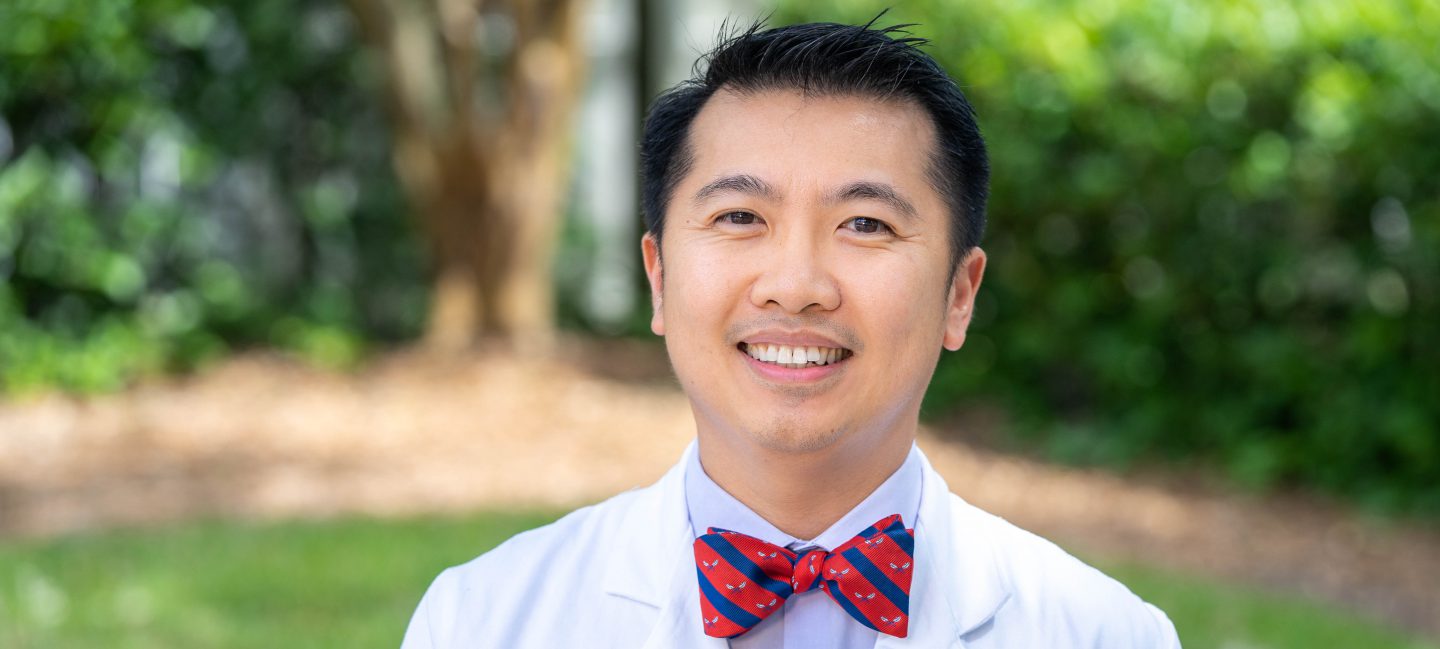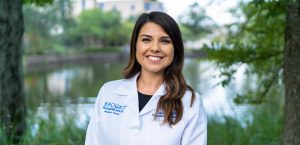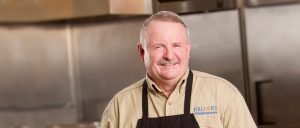Q & A with Dr. Kenneth Ngo, Medical Director of the Brain Injury Program and Associate Medical Director of Brooks Rehabilitation Hospital

Back to physical health resource hub
Kenneth Ngo, MD, joined Brooks Rehabilitation in 2010 and currently serves as Medical Director of the Brain Injury Program and Associate Medical Director of Brooks Rehabilitation Hospital. He is board certified in Physical Medicine & Rehabilitation, with a subspecialty board certification in Brain Injury Medicine. Dr. Ngo is also on the board of directors for ThinkFirst, a national foundation whose mission is to prevent brain, spinal cord and other traumatic injuries through education, research and advocacy. We wanted to learn more about Dr. Ngo’s background and the brain injury rehabilitation programs and treatments that Brooks offers.
Tell us about your medical education.
I received my medical degree from the University of Wisconsin School of Medicine and Public Health, completed my internship at Michigan State University and residency at the Medical College of Wisconsin.
We understand that your Bachelor’s Degree is in Biomechanical Engineering. How did that lead you to medical school?
Becoming a physician was in my mind, although I didn’t solidify the decision until later in college. I decided to study engineering because I loved science and math. I enjoyed the challenge of working on and figuring out problems. I decided on medical school for a couple of reasons. There is an idealistic view of medicine — you can have a direct and immediate impact on patients and their quality of life. With engineering, the results and impact seemed far removed to me, at least at the time. Another was the idea of advancing medicine using technology — that was intriguing to me. Looking back, I believe that having a background in engineering provided me with a solid foundation for excellent problem-solving skills and teamwork required for the practice of rehabilitation medicine.
Why did you choose rehabilitation medicine?
I was open to different specialties during medical school. I was drawn to the human aspect of medicine — sitting with patients, talking to them about their lives, what they like to do and figuring out how I can impact the quality of their lives. At one point, I thought I wanted to be an orthopedic surgeon, which seemed logical after engineering, but found out I did not enjoy the operating room. I do, however, enjoy talking to the patients and helping them find ways to do the things they love to do, even if it’s in a different way than before. That’s what rehabilitation medicine really is — restoring function and helping patients live fulfilling lives with joy and dignity, albeit with cognitive and/or functional impairments.
Then why specifically Neuro/Brain Injury Rehabilitation?
The brain is a fascinating organ. I feel the brain is the last frontier of medicine that needs to be further explored and understood. That’s the challenge — understanding brain function, behaviors and how we think, how we carry ourselves and how we live our lives. I hope that the more we understand the brain, the better we can help our patients live meaningful lives.
What types of brain injuries do you see most often?
We typically categorize brain injuries into traumatic brain injuries and non-traumatic brain injuries. Traumatic brain injuries are injuries to the brain that result from trauma, such as a car accident, falls or an object striking the head. Non-traumatic brain injuries are injuries to the brain from non-trauma, such as from brain tumors, severe heart attacks and brain infections.
We treat patients with all types of brain injuries, from mild brain injury (concussion) to the most complex and severe conditions. What distinguishes Brooks’ brain injury continuum of care from other healthcare systems is our ability to take care of complex, catastrophic brain injury conditions; and the extensive services we have available for all patients with brain injuries. I feel blessed and privileged to have these extensive services and excellent clinicians at Brooks to help patients with brain injuries live fulfilling lives with meaning, purpose, joy and dignity.
Dr. Ngo published in JAMA Neurology
Dr. Kenneth Ngo was a co-investigator and co-author of this large multi-center randomized clinical trial looking at the efficacy of home-based therapy versus in-clinic therapy for adult patients after stroke.
“We found that patients receiving activity-based training at home, with guidance via telemedicine, had substantial gains in arm motor function similar to traditional in-clinic therapy. This is a significant finding for post-stroke survivors who have difficulty getting to outpatient therapy centers. Thanks to our wonderful and hard-working research team under the leadership of Dr. Raine Osborne, Brooks was one of the three recruiting centers for this study. The success of this study solidified Brooks as a major research center in the StrokeNet network as well as catapulting Brooks’ visibility to the national stage.”
Learn more about the study: “Efficacy of Home-Based Telerehabilitation vs In-Clinic Therapy for Adults After Stroke: A Randomized Clinical Trial.”


